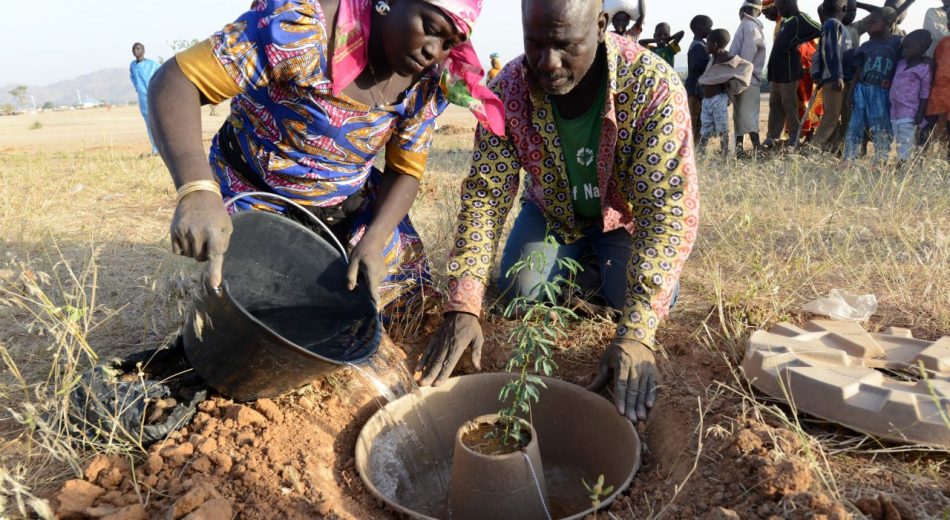In 2014, thousands of refugees who were fleeing the violence linked to militant group Boko Haram in Nigeria came to Minawao, Cameroon, a desert region badly affected by climate change. Since 2014, almost 70,000 refugees had made the space their home, cutting down the last standing trees to support themselves.
However, thanks to a reforestation program launched in 2018 by the United Nations High Commissioner for Refugees (UNHCR) and the Lutheran World Federation (LWF), the once dry and barren desert has been transformed by the refugees into a life-giving forest.
The refugees and local communities were trained to implement “cocoon technology,” developed by Land Life Company, when planting. This technology involves burying a doughnut-shaped water tank comprised of recycled cartons along with the plant, providing the seedlings’ roots with much-needed water, which gives the seedlings the best chance of survival in the extreme desert environment.
So far, the volunteers in the refugee camp have planted 360,000 seedlings and have successfully transformed 100 hectares of severely degraded land (which adds up to the area of 250 football fields) into thriving forests.
According to refugee volunteer Lydia Youcoubou, “Minawao has become a place that is green all over and there are a lot of benefits to that. We have shade from the sun, the soil has improved, and the trees attract water.”
The shade that the more mature trees provide also allows food and herbal medicines to be grown in the refugee camp.
The ambitious reforestation project contributes to the African-led initiative called the Great Green Wall. The goal of the Great Green Wall is to develop an 8,000 km continent-wide barrier to mitigate the desertification of the Sahel, a territory on the border of the Sahara and the Sudanian savanna.
Source image: Land Life Company











